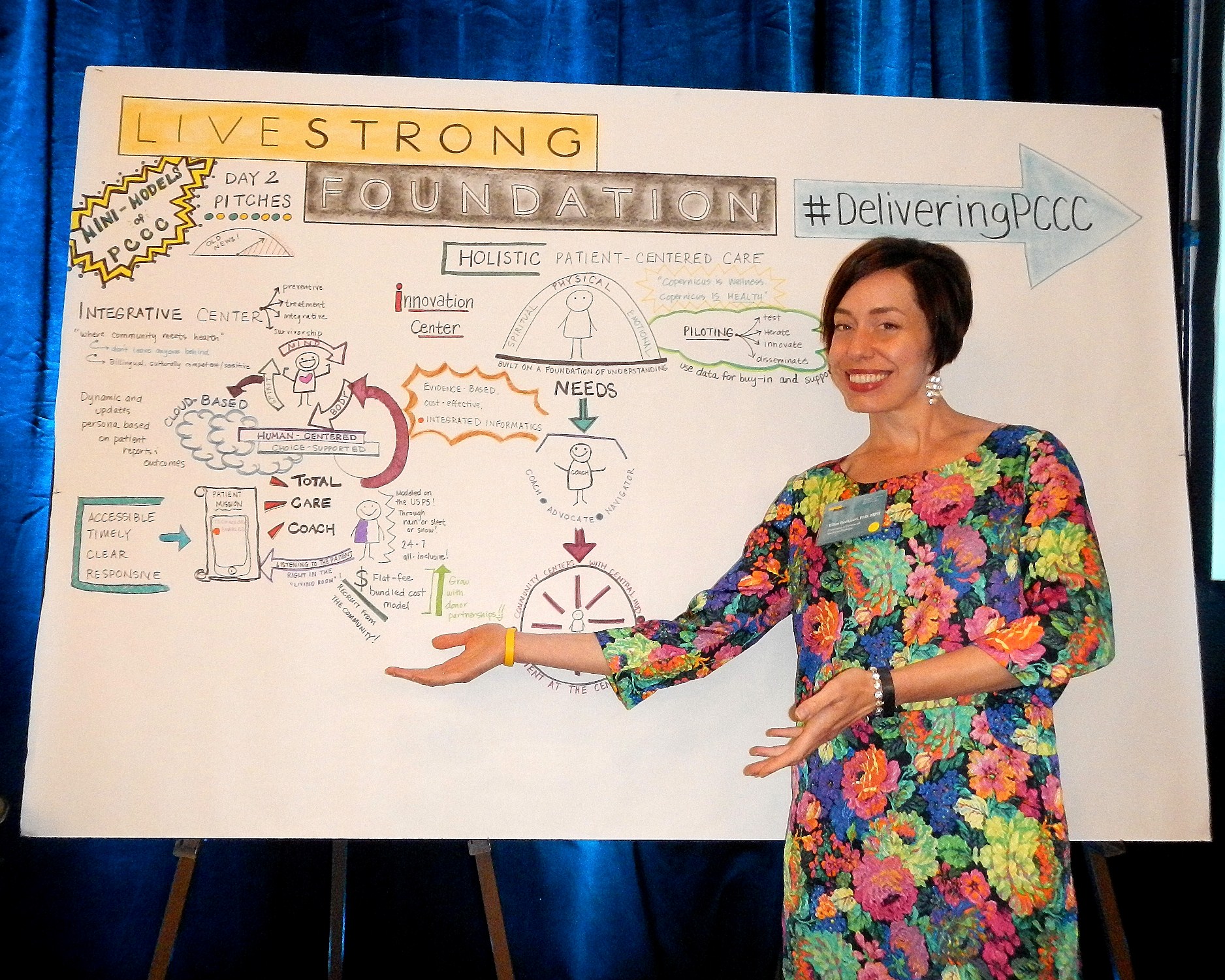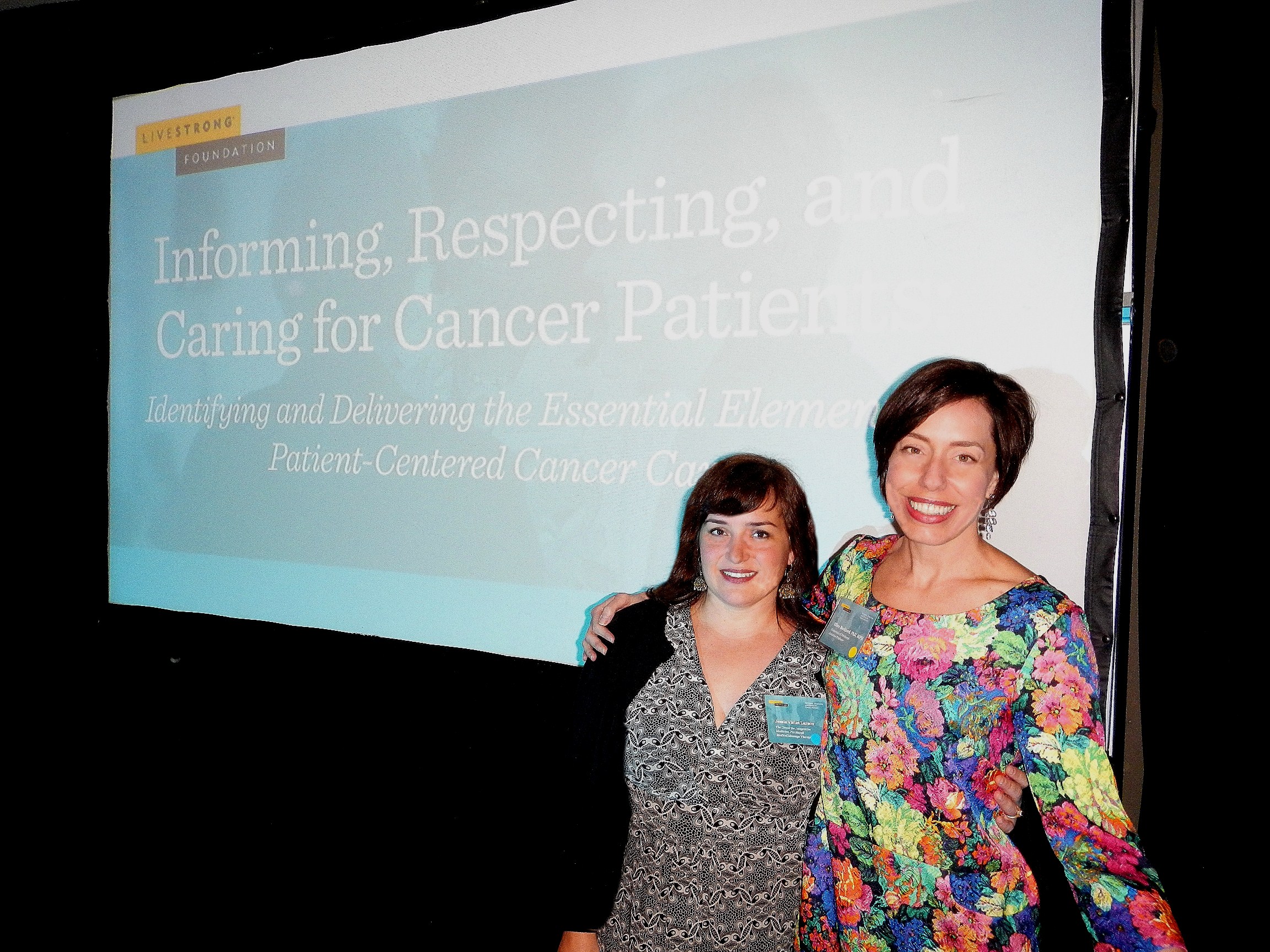The LIVESTRONG Foundation earlier this month convened a meeting of nearly 100 stakeholders including providers, researchers, survivors and policy makers, focused on improving the delivery of patient-centered cancer care. LIVESTRONG defines patient-centered cancer care as care that is “respectful of and responsive to individual patient preferences, needs, and values, and ensures that patient values guide all clinical decisions.”
I work as an assistant professor in Psychiatry at the University of Pittsburgh Cancer Institute and was asked to present at the meeting. A UPMC colleague, Jessie Larson, a medical massage therapist with specific expertise in treating people affected by cancer at the UPMC Center for Integrative Medicine, was also asked to present.
My research has focused on cancer survivorship since 1999, and I am very passionate about being a part of how UPMC provides patient-centered care to people diagnosed with cancer. When a person is diagnosed with cancer, they deserve all the time that they can get to fight and to survive. They should be supported, at every level, to do it. Providing patient-centered cancer care is part of how we protect that time for people affected by cancer.
At the meeting, I presented the work I have been doing with the LIVESTRONG Foundation to identify 23 elements of patient-centered cancer care. The elements, which will be published in a LIVESTRONG report, covered a wide variety of topics including things like the establishment of an informatics-enabled learning health care system and proactive communication between all members of the cancer care team to very practical ideas like informing patients about the costs of care and keeping wait times for appointments to a minimum.
At the UPMC Center for Integrative Medicine, Ms. Larson is on the front-lines providing patient-centered care. Much of what she heard discussed at the meeting was in-line with the ways she already works to “humanize” the care she provides with efforts to personalize survivors’ experiences of care.
“In an increasingly impersonal world dominated by technology, texting, breakneck schedules, it is more important than ever to slow down and take time with each other for best healing results,” she said.
Ms. Larson was selected by her colleagues at the symposium to pitch a “mini-model” of patient-centered cancer care on the second day of the meeting. Her model was built around the idea of a patient “living room” – a physical and virtual space where a patient could convene with all the people involved in their cancer care to have discussions, exchange information, and make care decisions.
LIVESTRONG will be using the outcome of the meeting to directly inform local efforts in Austin, Texas, at a new medical school and cancer center at the University of Texas. But for Ms. Larson and I, we are both excited about bringing what we learned back to UPMC as well.
We are so fortunate to be a part of a world-class medical system that already raises the bar on providing patient-centered care. It’s incredibly exciting to have the chance to raise the bar even further for the survivors we treat at UPMC.
“At the Center for Integrative Medicine, we’re always working to raise awareness in the UPMC community about the healing services we offer,” Ms. Larson said. “Integrative medicine was a central feature of how people talked about patient-centered cancer care at the LIVESTRONG symposium, and UPMC is in a unique position to lead the field by leveraging the Center for Integrative Medicine in its continued efforts to provide high-quality, patient-centered cancer care.”
To learn more about the LIVESTRONG symposium, watch this video.









